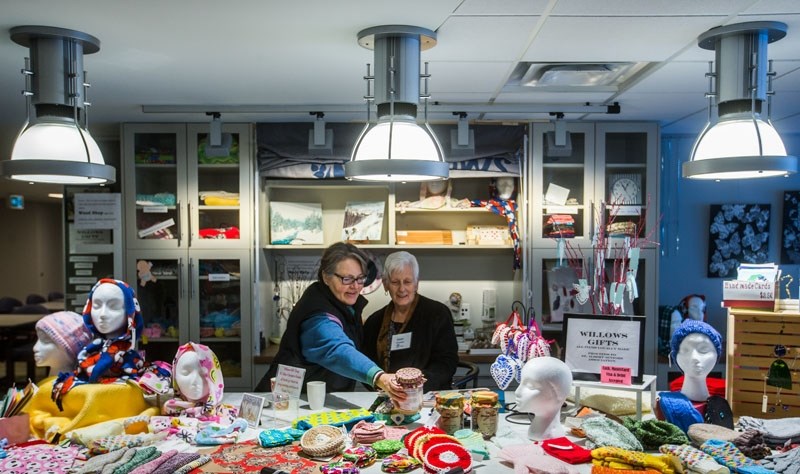A new fund for energy audits could help non-profits find more cash for their daily operations, say local eco-advocates.
But two of St. Albert’s biggest non-profit organizations say they’re not sure if they’ll be able to make use of that money.
Alberta Environment Minister Shannon Phillips announced last week that the province had created a $1 million grant program meant to help non-profits do energy audits of their lighting, heating and cooling systems.
Those audits are meant to help non-profits position themselves to tap into the energy efficiency program for non-profits, institutions and businesses that’s set to roll out later this year, said David Dodge, former Gazette reporter and chair of Energy Efficiency Alberta, which will run the new grant program.
“NGO budgets are tight,” he said, and most don’t take the time to find savings through energy efficiency.
“We want to make sure they get some good advice.”
Details on the grant are still in the works, but Dodge said he suspected it would go out on a first-come, first-served basis. The province had yet to determine the number of audits the grant fund would cover.
Most energy audits cost $500 to $1,000, depending on the size of the building, said Thomas Barr of the energy-consulting firm NuEnergy Group. Many non-profits are based in older, less-efficient buildings that likely have substantial room for improvement when it comes to efficiency.
“Lighting will be a huge one,” he said, especially when it comes to replacing old fluorescent bulbs with LED ones in warehouses.
“We’ve seen six-month paybacks on some of these older buildings just from energy savings.”
The new fund is one of several introduced by the province to offset the cost of the new carbon tax, which boosts the cost of gasoline and natural gas.
St. Albert Seniors Association executive director Karin Debenham said her group expected to see a decent-sized jump in its energy bills this year as the group’s new building has a bigger kitchen, one that’s now used daily instead of weekly. She’s not sure how much it will rise, however, as the new building is also much more efficient than the old one, which had single-pane windows amongst other deficiencies.
“Given that we’ve just gone through a renovation, I’m not sure I would do an energy audit right now,” she said.
The St. Albert Food Bank is based in one of the city’s oldest warehouses, and despite the addition of some modern fluorescent lighting, it’s not really energy efficient, said executive director Suzan Krecsy.
“We’re doing a lot of driving in a week,” she said, so she expects the carbon tax will add to her organization’s fuel costs. It will be a few months before she knows the extent of the tax’s effect on the group’s energy and food bills.
While energy audits help, Krecsy said the food bank planned to move into its own building in the near future, one that will be designed to be as efficient as possible. It would be up to the city to approve any audit or energy retrofit for the current building.
Non-profits who work in city-owned buildings such as the seniors association can apply for grants such as this new one and tap the city’s community capital grants to do actual retrofits, said St. Albert environment director Leah Kongsrude. The Charles Gale Centre Society previously received such a grant to put in efficient lighting and water fixtures, for example.
Energy efficiency makes non-profits more resilient, Dodge said. He’s involved with the Evansdale Community League in Edmonton, for example, which has invested heavily in energy efficiency and solar energy.
“What it does for us is it manages and significantly reduces our operating costs for the next 20 to 30 years, which is just going to mean we have more cash available to do programs.”
Questions on the grant should go to [email protected].




